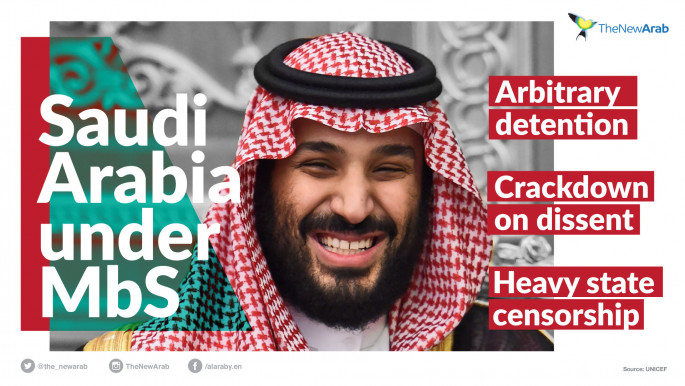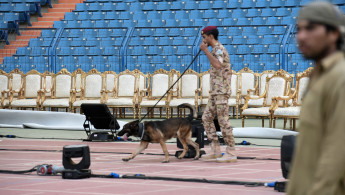Saudi Arabia welcomes Ramadan with a spate of arrests
According to human rights groups, political activist, Mohammed al-Rabiah, a lawyer for the "Hasem" opposition, Ibrahim al-Mudaymeg, and leading activists in the women’s rights movements, Lujain al-Hathlol and Aziza al-Yusuf, are among those arrested.
Sources speaking to The New Arab confirmed that a number of activists were detained in a fierce crackdown that begin Thursday evening.
Authorities targeted liberal and feminist activists ahead of the implementation of lifting the driving ban in late June.
The source pointed to the presence of new security agencies involved in the arrests, including a cyber-security agency managed by the Crown Prince Information Advisor Saud Al-Qahtani.
Critics and human rights activists have closed their phones and deleted their accounts from social networking sites for fear of prosecution.
While the reason for the arrest remain unknown, sources - who wish to remain anonymous - indicate that the latest arrests were tied to advocacy for women driving.
"They detained them because they do not want them to publicly claim success," the source said.
Women in Saudi Arabia will be allowed to start driving in the ultra-conservative kingdom from 24 June, the kingdom announced earlier this month.
While some have hailed the "progressive move" it has also been accompanied by an apparent crackdown on dissent against critics, ranging from Islamist clerics to some of the very women who campaigned for years to end the ban.
Activists and analysts believe that the government is keen to avoid rewarding activism.
Twitter Post
|
"Ministry of Interior: Seven were arrested on charges of transgression against national and religious principles, suspicious communication with foreign entities, recruitment of persons working in governmental positions, providing financial support to hostile foreign elements to undermine the Kingdom’s security and its social and national fabric."
In September, a royal decree announced the end of a decades' long ban on women driving - the only one of its kind in the world.
Crown Prince Mohammed bin Salman, 32, is seen as the force behind the lifting of the ban, part of a series of reforms being pushed by the powerful royal in the conservative kingdom.
His economic Vision 2030 reform plan for a post-oil era seeks to elevate women to nearly one-third of the workforce, up from about 22 percent now.
Saudi activists say social change will only be cosmetic without dismantling the kingdom's rigid guardianship system, which requires women to seek permission from a male relative to study, travel and other activities.






 Follow the Middle East's top stories in English at The New Arab on Google News
Follow the Middle East's top stories in English at The New Arab on Google News
![Israeli forces ordered bombed Gaza's Jabalia, ordering residents to leave [Getty]](/sites/default/files/styles/image_330x185/public/2176418030.jpeg?h=a5f2f23a&itok=_YGZaP1z)

